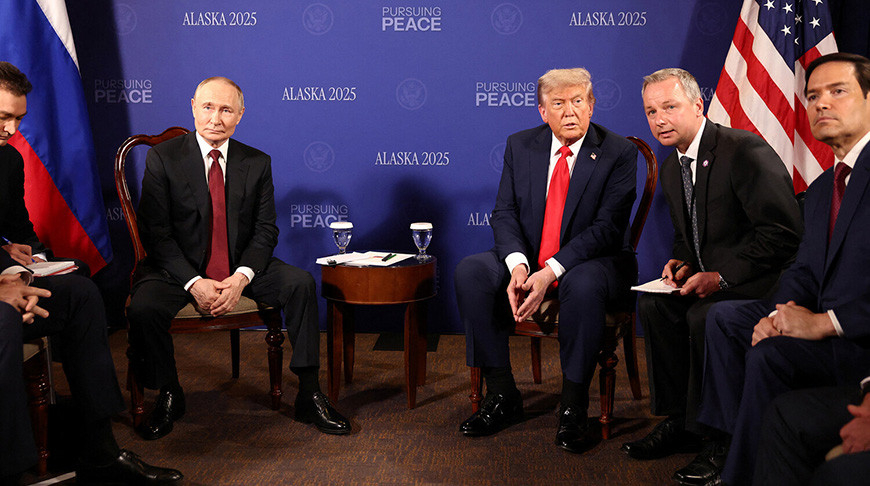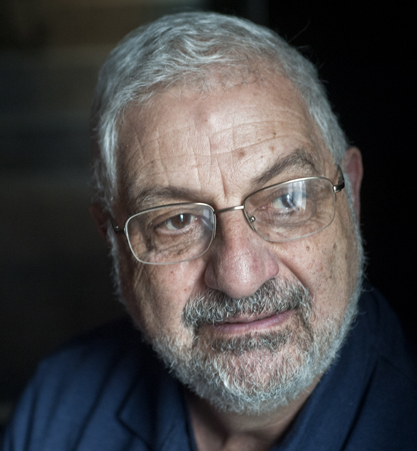The Alaska summit and its Afterlife: A glimpse into what peace looks like to Putin and Trump


But in the next several days it became clear that Trump had moved away from agreements he had made with Ukrainian president Zelenskyy and European allies toward essentially agreeing with Putin's call for territorial concessions by Ukraine, no immediate ceasefire, and negotiations leading to a conclusive peace agreement. The Anchorage summit, it may turn out, was a major turning point in the position of the United States, though the capricious Mr. Trump might change his mind at any moment.
As a longtime scholar of Russian and Soviet history and professor of political science for five decades, I believe that we may already have glimpses of what a future peace deal may look like. It may be hard to swallow, especially for Ukraine, but it suggests a meeting of minds between the leaders of two Great Powers, Russia and the United States. After all as President Trump told Fox News after the summit, "it’s good when two big powers get along, especially when they’re nuclear powers. We’re No. 1 and they’re No. 2 in the world. For Trump, it is key that "Russia's a very big power, and [Ukraine] is not."
What we thought we knew and what we now think we know
Some of what we knew before the summit remains unchanged after the summit. First, the European powers -- notably Germany, France, and the U.K. -- remain fully supportive of Ukraine and prepared to back Kyiv in continuing its resistance to the Russian invasion and occupation of that country.
Second, President Volodymyr Zelenskyy of Ukraine opposes concessions to Russia, at least publicly. Talk of "land swaps" ahead of the Anchorage summit were quickly ruled out by Kyiv as off the table. Rather, Zelenskyy believes that with Western, and most importantly American arms, Ukraine can effectively resist Russia and secure a better end to the conflict than is evident at this perilous moment.
On the other hand, the aims and positions of the United States under Trump, beyond securing a deal, appear to be fluid. A day after the Putin-Trump summit, it appeared that Washington had moved more towards Moscow's way of thinking in regard to how the war should end, backing a sweeping peace deal rather than an immediate ceasefire. But this could all change. And while Putin talks of the need to address the "primary causes" of the Ukraine conflict and publicly pushes a maximalist position, it isn't entirely clear what he will actually settle for in regards to the security and land arrangements he says he needs.
Two strategies of great powers: Imperial or hegemonic
In my understanding, there are two opposing ways of interpreting the aims of both the United States and Russia: “Imperial” and “hegemonic.” The former stems from a understanding of those countries’ long experience as empires, the latter is based on a realist reading of how great powers operate in the international arena.
Countries that have descended from empires have memories of former greatness that many wish to repeat in the present. And while there is nothing fatalistic about such imperial fantasies that translate the past into the present, they often echo in the repertoire of the influential and powerful.
There are signs in the rhetoric of both Trump and Putin of such grandiose imperial impulses. Both men have talked of returning their country to a "great" past, and have harbored desires of annexing or dominating other countries. And many Western analysts of Russia are convinced that Putin, in particular, dreams of becoming another Peter the Great, who expanded his empire into the Baltic region (Estonia, Latvia, Lithuania today), or Catherine the Great, who sent her armies south into "New Russia," that is, what is today Ukraine.
Hegemony
But there is also another way, short of empire, that great powers act in the world: as hegemons, either regionally or globally. Instead of physical expansion of their country or colonizing other territories and peoples, hegemons act to dominate other countries economically and militarily -- and perhaps ideologically and politically, as well. But they do so without taking over the smaller country's domestic as well as foreign policy spheres. The United States, for example, through its dominant position in NATO, is a hegemon whose sway is paramount among the members of the alliance -- which can hardly operate effectively without the agreement of Washington.
In my view, Putin’s Russia, as heir to the Soviet Union, desires to be an effective regional hegemon in the former Soviet space and possibly in East Central Europe and Central Asia as well. Putin’s interests, in my opinion, are short of imperial – which would require full control of Ukraine's domestic and foreign policy – but are flagrantly hegemonic. In this reading, Putin may well be satisfied to achieve what the Soviets achieved in Finland during the Cold War: a compliant state that did not threaten Moscow, but remained independent in other ways.
Putin has such an arrangement with Belarus and might be satisfied with a Ukraine not fully sovereign, militarily weak and outside of NATO. At the Alaska summit, Putin not only mentioned Ukraine as a "brotherly nation" (which many bizarrely take to mean that he intends to make Ukrainians Russians) but emphasized that "the situation in Ukraine has to do with fundamental threats to our security." One can read Putin's words in many ways but in his public comments following the sit down with Trump, Putin frankly framed the Ukraine conflict in Russian security terms, rather than in imperialist language.
The problem for Putin is that Russia does not have the economic and military power, nor the reputational soft power attraction, to become a stable, influential hegemon in its neighborhood. Because it cannot achieve what the United States has managed to accomplish with both hard and soft power since the fall of the Soviet Union – that is, global hegemony – it has turned to physical force. That move has proven disastrous in terms of casualties, domestic economic distress, the mass migration of hundreds of thousands of Russians opposed to the war, and isolation from the global capitalist economy.
Why does this distinction between imperial and hegemonic matter?
The distinctions between an imperial foreign policy and a hegemonic one may seem semantic or academic. Even though they often overlap and blend into one another in many cases, their differences are crucial when looking at the prospects of a peace deal. American hegemony is usually enforced with economic muscle like sanctions or tariffs, and occasionally with coercion: invasions and coups. Imperialism is always about conquest and total subordination of one regime on another; hegemony falls short of that.
If indeed Putin is an imperialist who wants full control of Ukraine – or as is often claimed, the destruction of Ukraine, its elimination as a sovereign state and the recreation of the Soviet Union – then negotiation and compromise with Russia becomes impossible, and a war of annihilation will continue until one side crushes the other. Putin is determined to show his people that the war was worth their sacrifices, And the sign for that would be territorial expansion, the annexation of four contested provinces of Ukraine – Luhansk, Donets, Zaporizhzhia, and Kherson – as well as Crimea taken in 2014. That goal is certainly imperial.
If in fact Putin would be satisfied with accepting the rest of Ukraine as a less than fully sovereign Ukraine, one that remains outside of NATO, and is neither a base for Western powers nor a military threat to Russia, then negotiation and compromise becomes possible. Here the problem is that such a solution would be unacceptable to Zelenskyy and would have to be imposed on Kyiv. That would be anathema to the major European powers, though not necessarily for Trump.
Besides Putin's needing to clarify what Russia is willing to accept, there is another major obstacle to a ceasefire and eventual peace in Ukraine. Europe and the United States do not have a united position on the final solution to the war. Even if both accept the view that Russia’s aims in the war are primarily about its own idea of security rather than conquest or elimination of Ukraine, will Europe accept Putin’s demands for a major overhaul of the military balance in East Central Europe and a militarily weakened Ukraine? Trump appears unconcerned about a truncated Ukraine subordinated to Russia. His major concerns seem to lie elsewhere: real estate and other deals and a Nobel Peace Prize. But the United States may have to guarantee the security of Ukraine against future Russian attacks, something that Trump has hinted at while abhorring the sending of American troops into foreign conflicts.
Realism versus morality and a just peace
Wars have consequences, both for the victorious and the defeated. And the longer this war goes on, the more the grinding advance of Russia further into Ukraine becomes likely. The Zelenskyy government may want to fight on to victory or a better outcome than seems possible right now, but the military might of Russia -- coupled with Trump's ambivalent support of Ukraine in recent months makes this all the harder.
Given those realities, I am convinced that the solution to the war appears at this moment to be closer to what Russia is willing to accept. And Trump seems to think that this would be a much better, less bloody path for both Russia and Ukraine.
The deal Trump is moving toward would be a sub-optimal peace. But if Putin's aims are hegemonic rather than imperialist, then it is the best of bad options. If some acceptance of his security requirements are recognized by the West – and if Russia is willing to moderate its demands and reevaluate what threats it actually faces from Ukraine and the West – there may be an opening for a peace deal based on significant Ukrainian concessions.
Land for peace is always painful. Putin, the aggressor, then becomes the victor. Ukraine, as Trump so brutally put it, does not have cards to play in this tragic game where Great Powers decide the fate of other countries. We are back to Thucydides, the ancient Greek founder of political science, who wrote, “Right, as the world goes, is only in question between equals in power, while the strong do what they can and the weak suffer what they must.” Not surprisingly, this is what international relations theorists call "Realism."
(First published on conversation.com )



